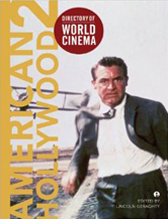
REVIEW: Salute
There are few sporting images as iconic as that taken moments after the Men’s 200m athletics final at the 1968 Mexico Olympics. Standing on the medal podium, their national anthem echoing around the stadium, the first and third placed African American athletes bowed their heads and each raised a black-gloved fist to the air. The action, mired in controversy, cut right to the heart of the civil rights movement, it was a moment that demanded attention, a portrait of defiance and courage.
What is less known, or perhaps overlooked, about that particular image was the second placed athlete who shared that podium (and the spirit of the moment), an Australian by the name of Peter Norman. Running in what was the fastest 200-metre race in the history of the sport (and whose time of 20 seconds remains an Australian record) it is something of a national shame that he has been, and I hesitate to use the phrase, seemingly white-washed from the history books.
 Six years after the project was initiated, Salute, a documentary on the event and the lives of the men involved in that image has now been granted a much deserved cinematic released. Directed by Matt Norman (nephew of Peter Norman), the film serves as much as a historical document on the political events leading up to the Mexico Olympic Games as it does a tribute to a man all but forgotten by a country for which sport and sporting triumphs, are frequently valorised above all else.
Six years after the project was initiated, Salute, a documentary on the event and the lives of the men involved in that image has now been granted a much deserved cinematic released. Directed by Matt Norman (nephew of Peter Norman), the film serves as much as a historical document on the political events leading up to the Mexico Olympic Games as it does a tribute to a man all but forgotten by a country for which sport and sporting triumphs, are frequently valorised above all else.
Given the often volatile nature of race politics, a documentary which in part attempts to elevate the status of a white male within a history characterised by the oppression of others may seem like treacherous ground. Norman however is no reactionary filmmaker, or white apologist, and the film commendably avoids any attempt to displace or rewrite the efforts of the two athletes who took centre stage on that night forty years ago.
What it does do is highlight the camaraderie between the three men, and the friendship that was built on that brief moment in time and has persisted ever since. But more than that, Salute highlights issues of race, of historical erasure, of political intervention, and the possibilities (and consequences) of global protest, that are as relevant now as they were back in the ‘revolutionary’ moment of 1968.
While Norman’s film clearly speaks from the heart, his passion for his uncle’s achievements and what he stood for, he doesn’t remain blind to the bigger picture – the history of racism that characterised America’s social divide and which lead to the defiant salute. Charting the cultural parallels between Australia and America during the late 1960s, Norman provides a strong historical and political frame for the personal story of Peter Norman, and the two Americans, John Carlos and Tommie Smith.
One of Salute’s biggest strengths is the film’s structure. Retreating from the iconic image at the beginning, Norman retraces the lives of the various competitors involved in that 200 metres final; their socio-economic backgrounds, their physical preparation, before building the drama of the event from the heats through to the final. Interspersed throughout all of this is footage taken from interviews with the three central athletes, fellow competitors, political figures, and athletics officials among others, and whose various commentaries lends the film some welcome moments of humour.
The timing of the film’s release is no doubt fortuitous, even prescient to say the least. With the Beijing Olympic games only weeks away, and issues of human rights abuse already on the horizon, Norman’s film serves as proof undeniable that when it comes to matters of sport, politics is never far away.





RSS feed for comments on this post. TrackBack URI